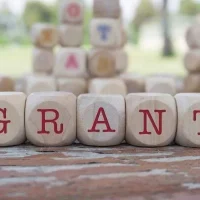Deadline: 21-Apr-23
The Agency for Health Care Research and Quality seeks applications for innovative research studies to test, refine, and implement equity-focused evidence-based interventions within healthcare delivery systems including the integration of implementation and outcome/impact evaluations.
The purpose of this funding opportunity announcement is to seek applications using dissemination and implementation (D&I) science to fill evidence gaps critical to the development, adaption, implementation, and evaluation of equity-focused evidence-based interventions (EFEBIs) to accelerate health equity within healthcare delivery systems.
Evidence-based interventions (EBIs) include but are not limited to care practices, processes, guidelines, programs, and policies shown to have effectiveness across multiple ecological levels (individual, interpersonal, health system, community, and societal/policy).
Objectives
The objective of this NOFO is to build new evidence regarding the implementation and effectiveness of EFEBIs to address disparities and advance equitable care in healthcare delivery systems. Applications submitted in response to this NOFO must include a detailed description of the development, implementation, and evaluation of the EFEBI and include the following:
- description of how the holistic/participatory approach selected will be used to center equity and ensure the voices of stakeholder and community members from underserved and priority populations are reflected in all stages of the research process; description should detail methods and role of partners, stakeholders, and community, and discuss any potential limitations to the approach;
- description of how the project will address priorities of underserved population(s), including those who experience persistent poverty and other socioeconomic inequalities and achieve overall research and health equity goals;
- description of EBI(s) selection (why and how) to ensure advances in equitable care delivery (including considerations of de-implementation and adaptations), and clear description of the primary outcome measure(s);
- discussion of how study designs and methodologies (i.e., alternative or pragmatic) will maximize equity and inclusion of diverse contexts, populations, and settings, while also balancing aspects of scientific rigor such as reliability, internal and external validity;
- inclusion of a graphic framework/model and corresponding description to illustrate how the EBI(s) and research approach addresses evidence gaps (transparency of logic and assumptions); show hypothesized relationships between various elements to reach the desired outcome (advancing equity). This framework/model should also delineate/or align with elements/metrics for the implementation and impact evaluation including but not limited to: contextual factors ranging from the populations characteristics, features of setting in which the EBI(s) is being delivered, connections to systems and sectors outside of healthcare setting, role of social determinates of health, cultural, organizational, and structural factors including specifically addressing the role of discrimination and racism at multiple levels (structural, institutional, and personally mediated) in the healthcare system;
- description of equity-relevant metrics included in implementation and outcome evaluation, including measures of health equity and measures of both direct and indirect effects of contextual factors impacting health equity and consideration of potential limitations of current measures;
- address elements of scalability, sustainability, and dissemination including the role of participatory methods that foster inclusion of partner, stakeholder, community (end-users) voice.
Funding Information
- AHRQ plans to invest up to $15 million over five years to support up to 6 awards.
- The total costs (direct and indirect) for a project awarded under this funding announcement will not exceed $500,000 in any given year and $2,500,000 for the entire project period.
- An application with a budget that exceeds $500,000 total costs in any given year or $2.5 million total costs for the entire project period will not be reviewed.
- The project period may not exceed 5 years.
Eligibility Criteria
- Public and State controlled institutions of higher education
- Independent school districts
- County governments
- Native American tribal governments (Federally recognized)
- For profit organizations other than small businesses
- Small businesses
- State governments
- Public housing authorities/Indian housing authorities
- City or township governments
- Others
- Special district governments
- Native American tribal organizations (other than Federally recognized tribal governments)
- Nonprofits that do not have a 501(c)(3) status with the IRS, other than institutions of higher education
- Private institutions of higher education
- Nonprofits having a 501(c)(3) status with the IRS, other than institutions of higher education
For more information, visit Grants.gov.






![Call for Applications: “Voices in Motion” Program [Sri Lanka] - fundsforNGOs Call for Applications: “Voices in Motion” Program [Sri Lanka]](https://www2.fundsforngos.org/wp-content/uploads/2023/04/dance-200x200.jpg)


































